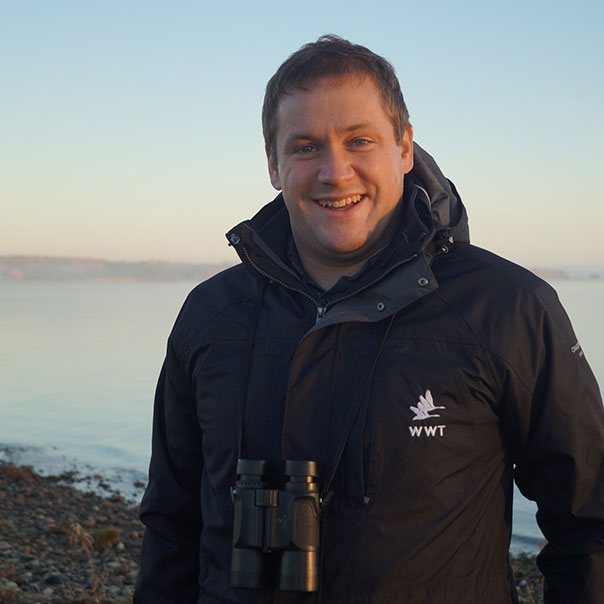Dr Kevin Wood
Principal Research Officer, Ecosystem Health & Social Dimensions

About me
I am a research scientist with broad interests in conservation, ecology, and behaviour. These interests began with a childhood chasing insects, climbing trees, watching birds and trying to catch fish in the Oxfordshire countryside where I grew up. After an undergraduate degree in Biological Sciences at the University of Bristol, my research career started through a NERC-funded MSc at Queen Mary, University of London. There I worked with Professor Jon Grey and the Environment Agency to investigate the effects of invasive crayfish on native fish in UK rivers. Continuing my interest in rivers, I completed a NERC-funded PhD on chalk stream ecology, supervised by Dr Matthew O’Hare (Centre for Ecology & Hydrology). I then spent over two years as a postdoc in Professor Richard Stillman’s Individual-based Ecology group at Bournemouth University, developing individual-based models to inform the management of waterbird and shellfishery conflicts. Since joining WWT in 2014, I have carried out research to improve our understanding of the interactions between wetlands and people. This has included quantifying the benefits of wetlands for people, identifying anthropogenic pressures that threaten the health of wetland ecosystems, and informing conservation action to protect wetland ecosystems.
My role
I work within WWT’s Conservation Evidence team. I’m involved in developing and carrying out a wide range of research projects that provide the inter-disciplinary (ecological, social) evidence needed to inform the conservation actions of WWT and our partners. My current areas of research include improving our understanding of the benefits of wetlands, in particular their provision of socio-cultural services to people and communities. My research also investigates anthropogenic threats to wetlands and their wildlife, as well as how species respond to conservation efforts. I have worked extensively on diagnosing the demographic and environmental causes of population declines in threated wetland species.
Experience and interests
Evidence synthesis: I use systematic reviews and meta-analyses to synthesise the available evidence on key topics to strengthen the evidence-base for our conservation work. Recent topics have included nature connectedness, cultural ecosystem services, and blue carbon.
Data analysis: Proficient in R, I carry out a wide range of statistical analyses, including linear and non-linear mixed-effects models, survival modelling using capture-mark-recapture/resight/recovery data, zero-inflated models, and moving average models.
Scientific publishing: I have extensive experience of scientific publishing, as an author, a reviewer, and an editor. Since 2012 I have published over 65 articles in peer-reviewed scientific journals. I have also made extensive contributions in book chapters, newsletters, online encyclopaedias and blogs. As a peer-reviewer, I have carried out a total of over 260 reviews across 74 scientific journals. I serve as an Associate Editor for two journals, Journal of Applied Ecology (2023–present) and Aquatic Botany (2017–present). In addition, I have also served as Guest Editor for special issues of journals including Hydrobiologia and Wildfowl.
Individual-based models: I develop individual-based models (also known as agent-based models) to predict how individuals and populations will respond to changes in their environment, such as land use changes, fluctuating food resources, and the development of energy infrastructure (e.g. wind farms and power lines). These predictions are powerful tools to guide conservation interventions.
Population biology: I analyse long-term datasets to estimate demographic rates including productivity and survival, and develop matrix population models to investigate how changes in demographic rates affect population dynamics.
Publications
For full list see my Google Scholar profile.
Wood, K.A., Jupe, L.L., Aguiar, F.C., Collins, A.M., Davidson, S.J., Freeman, W., Kirkpatrick, L., Lobato-de Magalhães, T., McKinley, E., Nuno, A., Pagès, J.F., Petruzella, A., Pritchard, D., Reeves, J.P., Thomaz, S.M., Thornton, S.A., Yamashita, H. & Newth, J.L. (2024). A global systematic review of the cultural ecosystem services provided by wetlands. Ecosystem Services, 70, 101673. https://doi.org/10.1016/j.ecoser.2024.101673
Mason, V., Burden, A., Epstein, G., Jupe, L.L., Wood, K.A. & Skov, M.W. (2023). Blue carbon benefits from global saltmarsh restoration. Global Change Biology, 29, 6517–6545. https://doi.org/10.1111/gcb.16943
Wood, K.A., Newth, J.L. & Hilton, G.M. (2021). For NGOs, article processing charges sap conservation funds. Nature, 599 (7883), 32. https://doi.org/10.1038/d41586-021-02979-5
Wood, K.A., (2020). Negative results provide valuable evidence for conservation. Perspectives in Ecology and Conservation, 18, 235–237. https://doi.org/10.1016/j.pecon.2020.10.007
Wood, K.A., (Brown, M.J., Cromie, R.L., MacKenzie, C., Newth, J.L., Pain, D.J., Perrins, C.M. & Rees, E.C. (2019). Regulation of lead fishing weights results in mute swan population recovery. Biological Conservation, 230, 67–74. https://doi.org/10.1016/j.biocon.2018.12.010
Return to meet the team